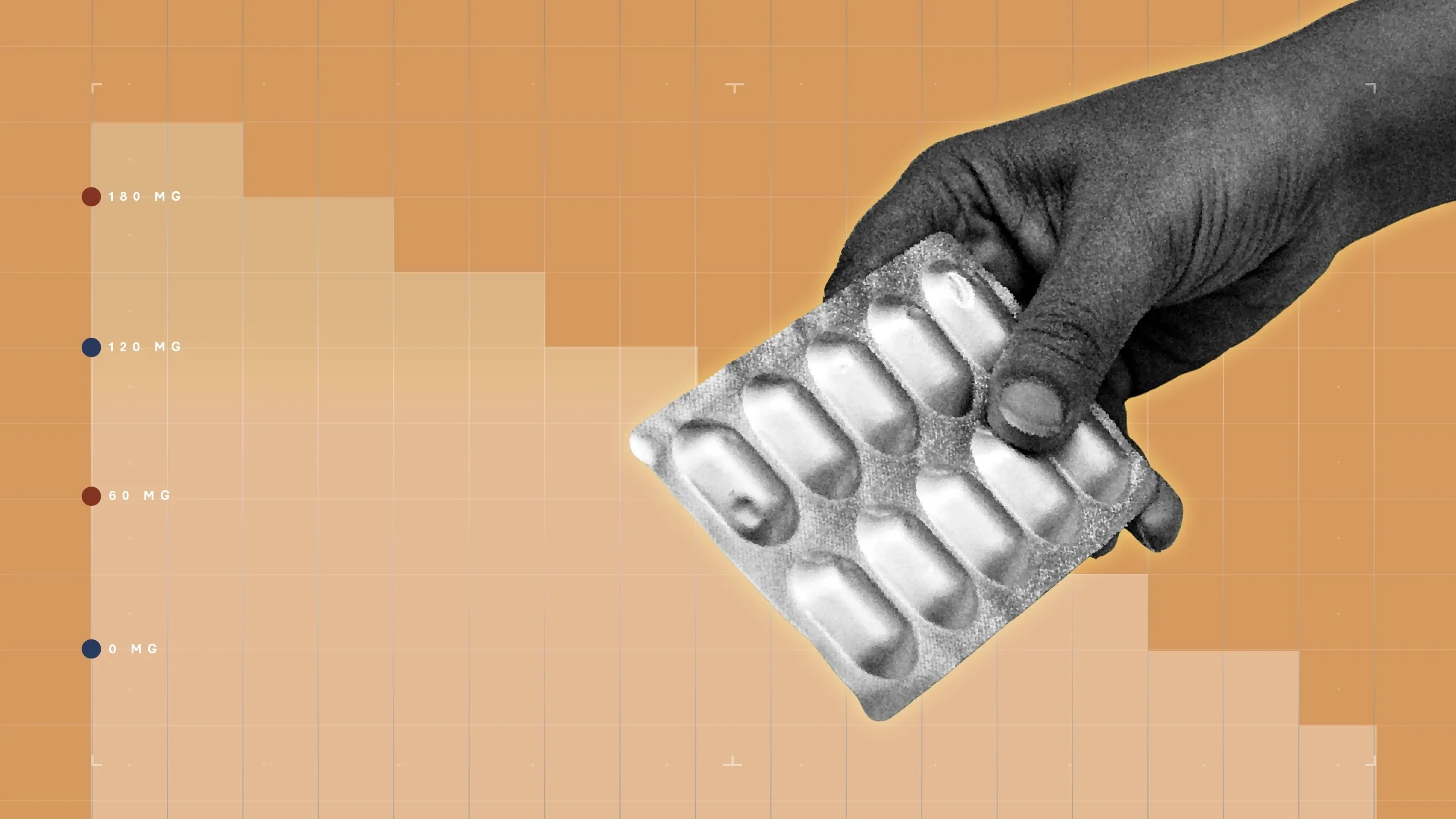Key takeaways:
Lynkuet (elinzanetant) is a nonhormonal medication that can help manage hot flashes due to menopause. It comes as an oral capsule.
The typical Lynkuet dosage is 120 mg (2 capsules) by mouth once daily at bedtime. You can take it with or without food. Be sure to swallow Lynkuet capsules whole; don’t chew, crush, or open them.
If you take certain interacting medications, you may need to take a lower Lynkuet dosage of 60 mg (1 capsule) once daily at bedtime or avoid it entirely. Your prescriber and pharmacist can tell you if this dosage change applies to you.
There are ways to save on Lynkuet. If you’re eligible, a manufacturer savings card could help you get Lynkuet for as little as $25 per month. A patient assistance program is also available.
Save on related medications
Hot flashes and night sweats are some of the most well-known menopause symptoms. And for decades, estrogen supplements were the only prescription options for managing them. But not everyone can or wants to take hormones. Over time, scientists have discovered several nonhormonal menopause medications.
Lynkuet (elinzanetant) is one example of a hormone-free menopause medication. It’s FDA approved to help reduce hot flashes and night sweats due to menopause (vasomotor symptoms). Lynkuet targets areas of your brain that help regulate body temperature.
If your prescriber suggests taking Lynkuet, knowing how to take it is essential. Below, you’ll find details about typical Lynkuet dosages for menopause.
Good to know: Lynkuet has been studied only for use in women who have gone through menopause. So you won’t find information about children’s or men’s dosages in this article.
What’s the typical Lynkuet (elinzanetant) dosage for adults?
Lynkuet comes as a 60 mg capsule. The typical Lynkuet dosage for menopause is 120 mg (2 capsules) by mouth once a day at bedtime. For consistent effects, try to take Lynkuet at about the same time each day. You can take it with or without food.
Swallow Lynkuet whole with water. Don’t chew, crush, or open the capsules. If you have trouble swallowing pills, tell your prescriber. Lynkuet doesn’t have a liquid or chewable version available. You may need to consider other menopause medications that have oral liquid or nonoral dosage options available.
Are there any Lynkuet (elinzanetant) dosage adjustments for health conditions?
There are no Lynkuet dosage adjustments needed for certain health conditions, such as liver or kidney problems. But you may need to take a lower dose if you take certain medications that interact with Lynkuet.
Lynkuet hasn’t been studied in people with end-stage kidney disease. So your prescriber may not recommend it for you if you have this condition. And Lynkuet can elevate your liver enzymes. So you shouldn’t take it if you have moderate-to-severe liver disease.
You also shouldn’t take Lynkuet if you’re premenopausal or in perimenopause (the transition years leading up to menopause). Lynkuet can cause pregnancy loss. So it’s not recommended for people who have the ability to become pregnant. Pregnancy is less likely to happen during perimenopause, but it’s still possible.
Lynkuet dosage for people taking interacting medications
If you take certain medications, you may need to take a lower Lynkuet dosage of 60 mg (1 capsule) once a day at bedtime. But there are other medications and substances that you should completely avoid combining with Lynkuet.
These interacting medications and substances slow the breakdown of Lynkuet in your body. This can cause Lynkuet to build up in your system, raising your risk of side effects.
The table below lists examples of medications and substances that interact with Lynkuet. It also explains how the interaction is generally managed.
| Take Lynkuet 60 mg daily | Avoid combining with Lynkuet |
|---|---|
|
|
This isn’t a full list of all possible Lynkuet interactions. Share an updated medication and supplement list with your prescriber and pharmacist. They can tell you if you can safely take Lynkuet with your other medications.
How long does menopause last? Check out our GoodRx guide to the stages and timeline of menopause.
Compare options: Lynkuet (elinzanetant) is one of several available menopause treatments. Learn about the different options and how to save on them.
Advice for hot flashes: Read a firsthand account of one woman’s experience with hot flashes, including her top tips for managing them.
In some cases, such as interacting antibiotics, you may only need to adjust how you’re taking Lynkuet for a few days. If this applies to you, your healthcare team can tell you when to restart the standard Lynkuet dosage.
What happens if you miss a dose of Lynkuet (elinzanetant)?
If you miss a dose of Lynkuet and haven’t gone to sleep for the night, take your dose as soon as possible. But if you realize you forgot it after waking up the next morning, skip the missed dose. Take your next dose at its usual time. Don’t double up or take extra Lynkuet to make up for a missed dose.
What should you do if you take too much Lynkuet (elinzanetant)?
If you take too much Lynkuet, you may experience more side effects than usual. Common Lynkuet side effects include headache, drowsiness, and dizziness. Diarrhea and stomach pain are also possible. In rare cases, people taking Lynkuet have experienced liver damage.
There isn’t much research on what could happen if a person takes an excessive amount of Lynkuet. To be safe, if you take more Lynkuet than prescribed, contact your prescriber. They can outline the best steps to take next. You can also contact Poison Control online or by calling 1-800-222-1222. If any side effects seem severe or life-threatening, call 911 or go to the ER.
How to save on Lynkuet
There are ways to save on Lynkuet, which is only available as a brand-name medication. GoodRx can help you navigate between patient assistance programs and copay savings cards to save money on your prescription:
Save with a copay savings card. If you have commercial insurance, you may be eligible to pay as little as $25 a month for Lynkuet using a savings card from the manufacturer.
Save with patient assistance programs. If you’re uninsured or underinsured, you may be eligible for Lynkuet’s patient assistance program, which offers the medication free of cost.
The bottom line
Lynkuet (elinzanetant) is a nonhormonal medication that can help manage hot flashes due to menopause. The typical Lynkuet dosage is 120 mg (2 capsules) by mouth once daily at bedtime. You can take it with or without food. But you should swallow the capsules whole.
If you take certain medications that interact with Lynkuet, you may take a lower dosage of 60 mg (1 capsule) once daily at bedtime. But some medications shouldn’t be combined with Lynkuet at all. Discuss the right dosage for you with your healthcare team.

Why trust our experts?


References
Bayer HealthCare Pharmaceuticals. (2025). Lynkuet (elinzanetant) capsules, for oral use [package insert].









